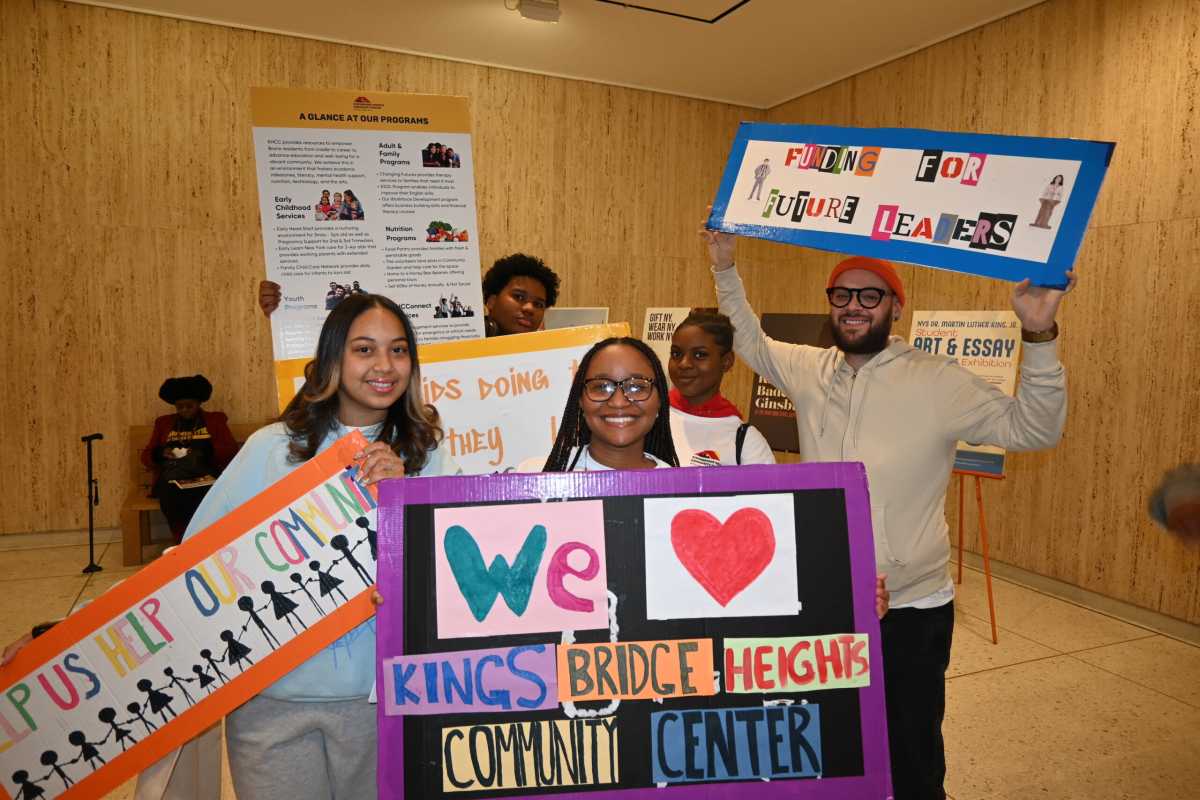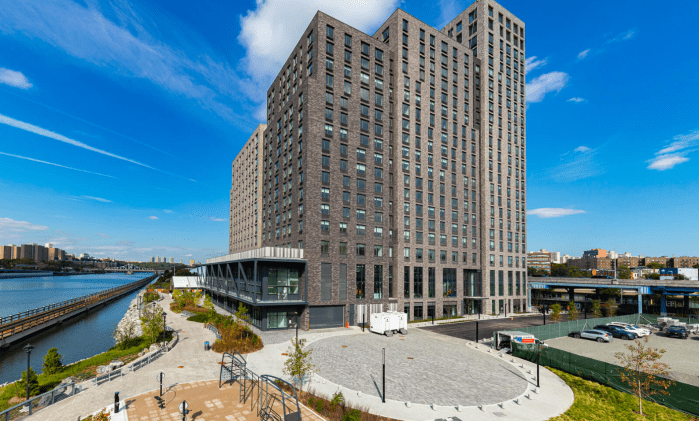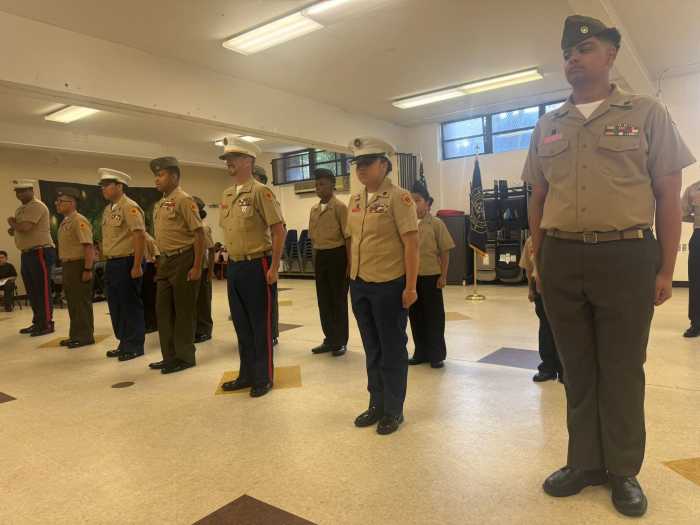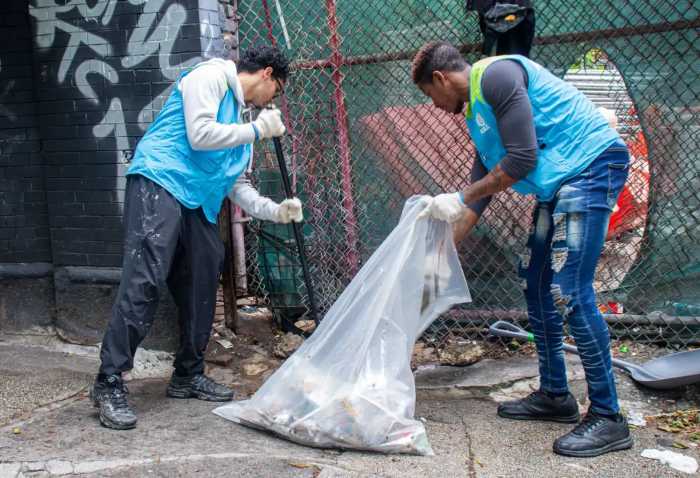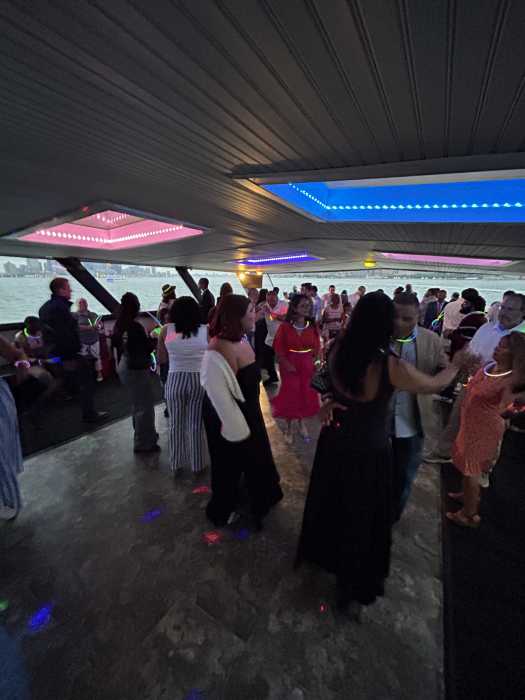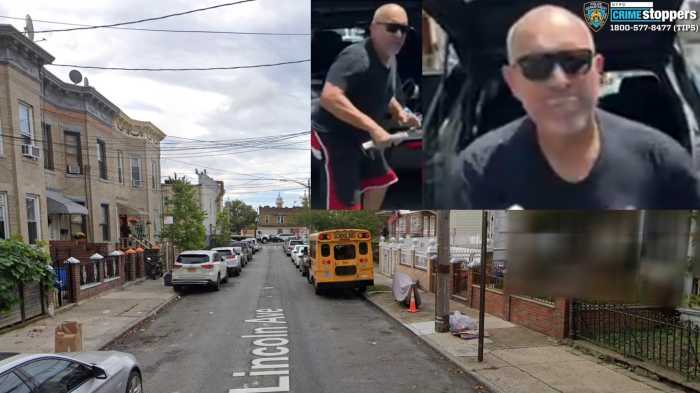A group of Bronx teenagers traveled to Albany last week on behalf of Kingsbridge Heights Community Center (KHCC) to advocate for increased state funding for afterschool programs in New York.
The teens were accompanied by KHCC staff members to “make their voices heard” to state Sen. Robert Jackson and Assemblymember Jeffery Dinowitz on Tuesday, Jan. 30.
“We are genuinely glad that everyone was able to speak about their unique experiences at KHCC and show how immensely appreciative we are of all their support throughout the years,” said Sadie Mahoney, chief officer of Adult and Family Programs at KHCC.
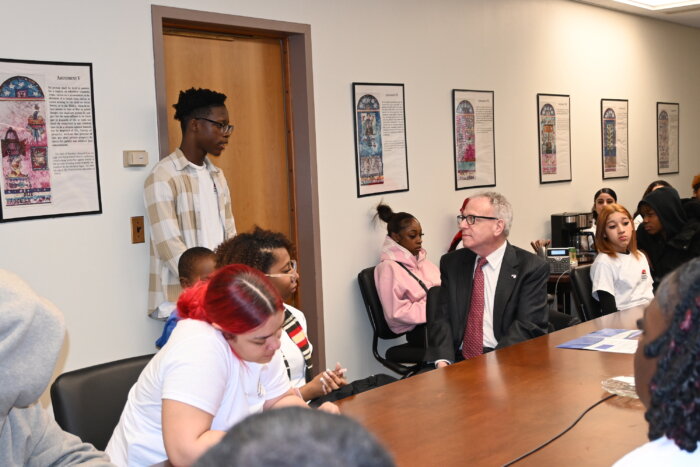
While KHCC staff prepared the data for the presentation, students had the opportunity to present statements about what the afterschool programs had meant to them. According to Bronx Teens Program Director Derwin Greene, the vast majority of the students present were seniors. They made the case that, while they may be moving on from the programs, they want their peers to have the same opportunities in the years to come.
Greene said he was very proud of the teenagers who went to speak and was excited to see youth participating in advocacy efforts in politics.
“Minority youth definitely don’t feel like the government is concerned with what they’re concerned about,” Greene said. “Trying to change that narrative was important for me.”
KHCC’s slew of afterschool programs for high school students includes social groups, sexual education curriculum, mental health screenings and help with post-secondary planning.
“These kids are the now and the future,” Greene said. “If we don’t have anything for them to do, their future will be severely impacted. They may not have the resources for them to do post-secondary planning. They may not have structures within their home or community to support them. What they do have is idle time.”
Greene says involvement in KHCC afterschool programs can reduce idle time for the teenagers, which he says sometimes leads to issues of teen pregnancy or teen crime.
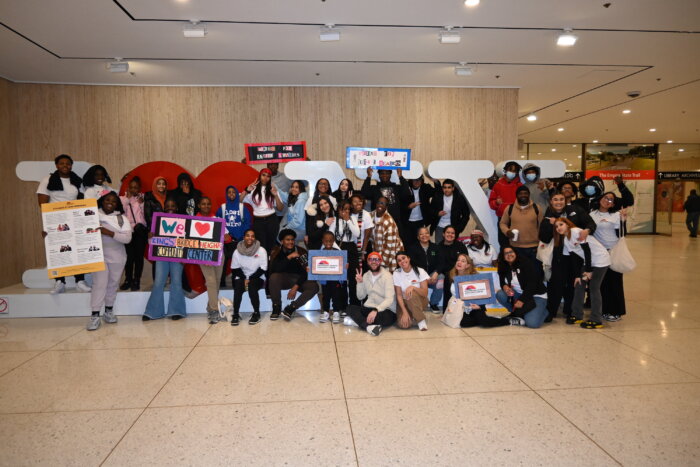
In the past year, KHCC has faced rising costs for providing their afterschool services, which has resulted in budget cuts and may threaten reduced enrollment in student programs.
Greene says the rising cost of program operation has a harsh impact on staff retention for both full-time and student workers. KHCC has been forced to consolidate roles as they search for new hires and has had a difficulty finding “quality staff” — which, Greene says, then affects the quality of care for the students.
In the future, KHCC may have merged funding from two grant proposals, which would allow the community center easier access to the money that supports the programs. But in general, Greene said he got the impression that there was a tension within state representatives to figure out how to allocate money between efforts with migrant families and afterschool programs like KHCC.
While these Bronx teens received no conclusive decisions during their trip to Albany, Greene says that KHCC will continue looking for new federal grants or foundations to support the work at the community center.
“You were able to get a seat with the senator. What are you going to do with that?” Greene said about his students. “They may shoot you down, but at least you were able to verbalize what you felt. You were able to step in and intercede on someone’s behalf.”
For more coverage, follow us on Twitter, Facebook and Instagram @bronxtimes

